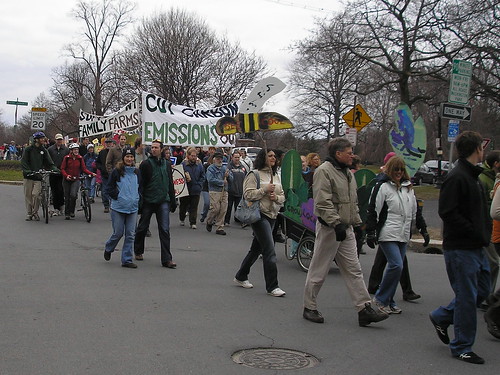This is the third talk I’m prepared to give – I would think that this would be appealing to political science/public policy academics and/or environmental NGO groups.
Examining the Use of Citizen Submissions on Enforcement Matters (CSEM) to the North American Commission on Environmental Cooperation (NACEC) by Environmental Non-Governmental Organizations
Citizen participation in North American environmental policy-making has had some ebbs and flows, with an increase in participation in some of the CEC’s strategies and programs. Two mechanisms were specifically designed to allow for citizen participation within the North American Commission for Environmental Cooperation (NACEC or CEC for short). The first mechanism is the Joint Public Advisory Committee (JPAC), a tri-national advisory board comprised by citizens from all three countries, and from varied backgrounds (industry, academia, non-governmental organizations).
The second one is the Citizen Submission on Enforcement Matters programme (CSEM), based on Articles 14 and 15 of the North American Agreement on Environmental Cooperation (NAAEC). This mechanism provides civil society organizations with the opportunity to play a “whistleblower” role. Any concerned citizen from any of the three countries can prepare and present a submission to the CEC Secretariat denouncing a country for failing to comply with its own environmental laws (NACEC 2001). The CEC Secretariat’s Office of Submissions on Enforcement Matters reviews the submission and assesses whether the submission actually warrants a response from the concerned country.
In this talk, I will provide an overview of a tri-national, collaborative project that examines CSEM. Our objective in this research project is to develop an empirical basis on which to explore the theoretical and applied aspects of civil society involvement on environmental policy-making. We focus on (amongst other aspects), how ENGOs use a trinational policy reform (CSEM). The CSEM is a mechanism built into the North American Agreement on Environmental Cooperation, designed to avoid “races to the bottom” and “pollution havens”. In theory, this type of institutional reform should empower civil society organizations to hold nation-states accountable.
We were particularly interested in undertaking an independent assessment on three key aspects. First, are citizen claims an effective mechanism to influence domestic environmental policy enforcement? Second, does this mechanism provide an opportunity for ENGOs to come together and form transnational advocacy networks? And third, what (if any) are the tangible impacts of the CSEM mechanism? As we have conducted our research, these objectives have had to be adapted and modified. I will offer preliminary results of our collaborative effort and suggest the direction that our project will take in the foreseeable future.


Again, I think that you need to lead with section #3 – get direct, right away. Sections #1 and #2 have too much detail for the abstract (I think) – I would be a little more forthcoming that this is a development stage of a project, and integrate bits and pieces of sections #1 and #2 into (currently) #3 and #4 as needed to maintain cohesion.
This sounds something that is interesting, and could provide insight into other advocacy work. I’m especially interested in the ‘race to the bottom’, and would (for my own work) be curious to see how your work would parallel that discussion in privacy regime literature.
Christopher Parsons’s last blog post..Privacy, Dignity, Copyright and Twitter